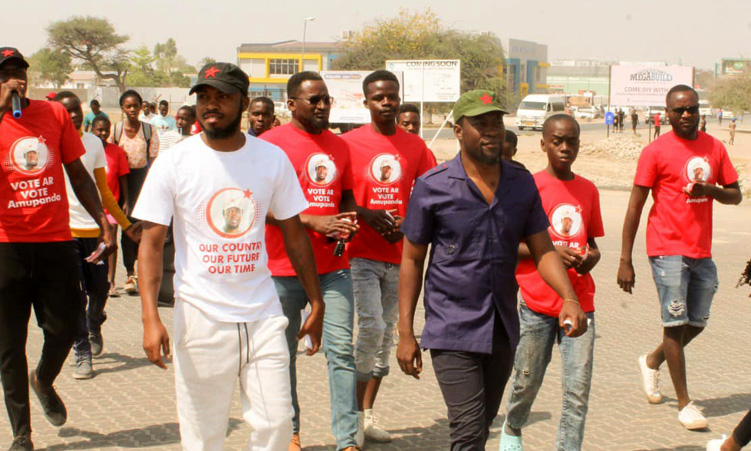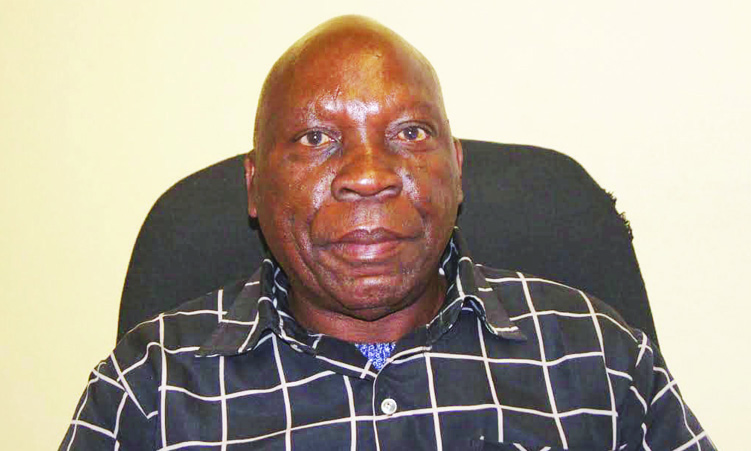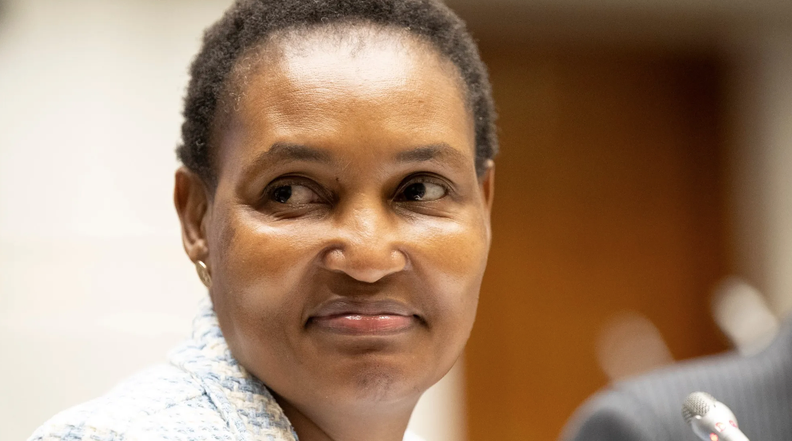The Affirmative Repositioning (AR) and Landless People’s Movement (LPM) have decided not to join the coalition of opposition parties planning to sue the Electoral Commission of Namibia (ECN) over the disputed national elections.
Several opposition parties on Sunday joined the Independent Patriots for Change (IPC) in its legal challenge of the conduct of the 2024 presidential and National Assembly elections.
This comes after the IPC wrote a letter to the ECN to inform the commission of the party’s intention to submit an urgent application to the Supreme Court to challenge the conduct of the elections.
The coalition of opposition parties includes the IPC, Popular Democratic Movement, Namibia Economic Freedom Fighters, Republican Party and Swanu of Namibia.
AR leader Job Amupanda at a press conference in Windhoek yesterday said the AR has decided to explore other avenues in terms of its next steps.
He said the AR will not act impulsively or align with other political parties without thorough analysis.
“We are a serious organisation.
It is important for you to discuss and analyse and resolve before you go and meet outsiders.
How do we then go already and meet other political parties without making a scientific, objective and subjective assessment of the elections?
“The first priority for us is to understand and take a position. It’s not our priority to join other political parties,” Amupanda said.
However, he asserted that the elections were not free and fair. He said the fact that the ECN admitted to “human errors” in Wednesday’s elections, and allowed for extra voting days, shows that the process was not free and fair.
The LPM yesterday confirmed that they will take their own direction in terms of challenging the ECN.
“As it stands, the LPM has been in consultations with opposition parties and we’ve decided to take a slightly different route,” said spokesperson Lifalaza Simataa.
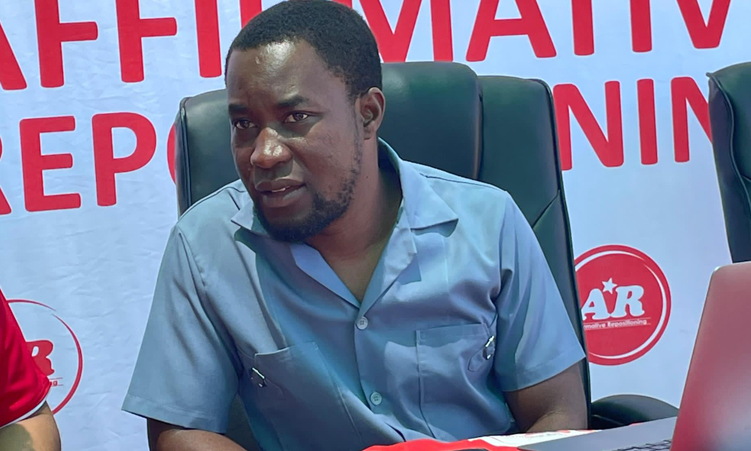
LPM leader Bernadus Swartbooi on Saturday said they want the election results to be released before embarking on a “good litigation process”.
Simataa yesterday afternoon reiterated Swartbooi’s comments, saying LPM are consulting with their lawyers in order to build a case.
“We’re trying to find out, because for example if it is voter suppression, we need to see the numbers. That will determine the case and the urgency.”
Simataa said the LPM are consulting widely to determine what type of case they can present.
“We’re pursuing most avenues that we can to try and see what is the best way forward to ensure that this is somehow rectified in some manner. We’re open to most legal avenues,” he said.
IPC general secretary Christine Aochamus says the party is waiting for the final results to be released before taking the ECN to court over the claimed unfairness of the national elections.
“You cannot take people to court prematurely, you have to challenge the outcome.
We are waiting for the full disclosure and announcement of the official results,” Aochamus said while speaking to Desert FM yesterday.
Political scientist Rui Tyitende believes the frosty relationship between AR, IPC and LPM stems from the meltdown of the coalition at the City of Windhoek.
AR supported IPC in the 2019 elections and the two parties, alongside LPM, stood together in the City of Windhoek coalition before the breakdown.
“One can make the argument that because of what has happened in other localities, the parties don’t [deem] it palatable to stand together now,” he said yesterday.
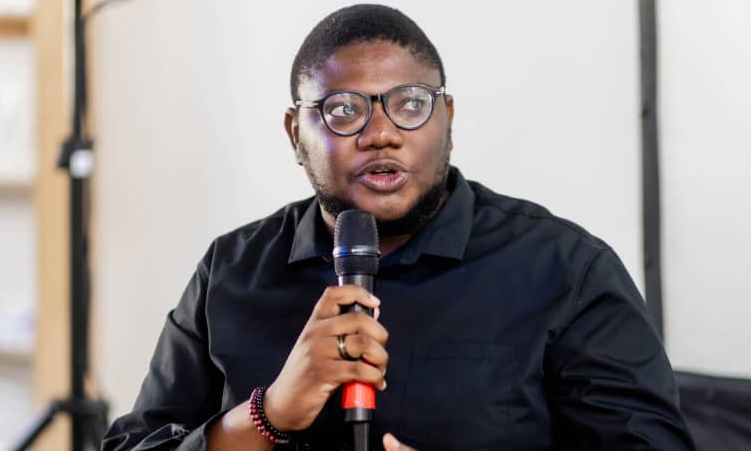
He questioned the split and whose interests would come first.
“That of the opposition parties or the electorate that wants to see change? Why go separate [ways]?”
Tyitende maintained that if all three parties feel aggrieved by the national elections process, it does not make political sense for each party to pursue a different course of action.
“They are all aggrieved by a process they feel is unfair, why go separate routes?
“Will everyone get their own lawyer? It will be in their interest to mobilise funds and put them together. Going separate ways will not make sense,” he emphasised.
SWAPO ‘HAPPY’ WITH ELECTIONS
Meanwhile, Swapo Party Youth League (SPYL) secretary general Ephraim Nekongo said the SPYL is happy with the electoral process so far.
“As much as there are allegations of rigging, we know we were present at all the polling stations and witnessed the process,” he said.
Nekongo highlighted that Swapo was equally disappointed about the shortage of ballot papers at some polling stations during Wednesday’s elections.
“Some people ended up giving up due to the long wait for the ballot papers, others waited until the ballot papers arrived,” he said.
He described the ECN’s process as slow and equally as frustrating for Swapo.
“However, the ECN resolved the issue by extending the voting period and allowing more people to vote,” he said.
According to Nekongo, opposition parties that are aggrieved and claim the elections were rigged should take the matter up in court, provided they have evidence.
“Don’t talk too much, gather your evidence and go to court,” he said.
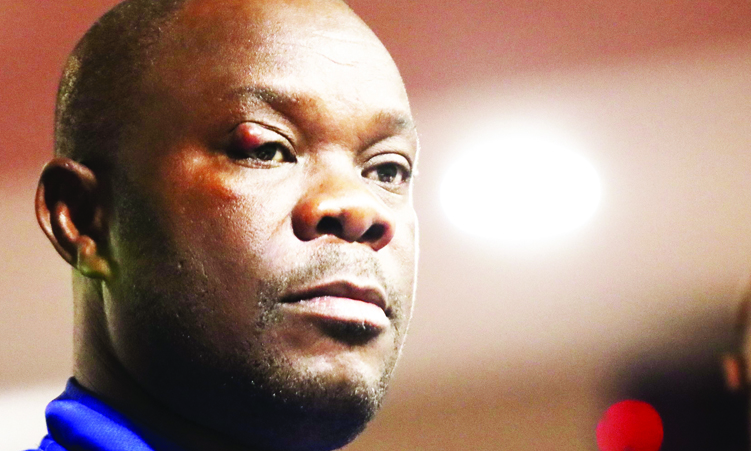
He warned opposition parties accusing Swapo of rigging the elections to desist from doing so.
“Prove to us how we rigged the elections. I want to warn the IPC that if they continue tarnishing Swapo’s name by saying we rigged [the] elections, we may be forced to take legal action later,” he added.
Constitutional law lecturer John Nakuta yesterday referred to section 115 of the Electoral Act.
“It says whatever mistakes might have occurred in an election, the court will not willy-nilly declare an election null and void or set it aside.
“The court must be convinced that the mistakes and non-compliance with the principles enshrined in the Electoral Act were material enough to affect the results of the election,” he said.
“Those who may want to challenge the elections will have to gather sufficient evidence so they can convince the court on a balance of probability that what happened on Wednesday was very, very serious, and had a material impact on the election outcome.
“Then the elections may be set aside,” he said.
Moreover, the second ground for a legal challenge would deal with president Nangolo Mbumba’s proclamation to extend the elections.
“Those who may want to challenge the election results probably stand a much greater chance to succeed in terms of challenging that proclamation,” Nakuta said.
“If you read the relevant sections in the Electoral Act . . . you get more and more convinced that the intention of the legislature was to have only one voting day,” he said.
Mbumba’s proclamation extended the parameters of the enabling act by two extra days, he said.
“Now that is an unlawful extension because subordinate legislation may not extend the scope and application of the enabling act.”
Nakuta said this would only mean the voting that took place on 29 and 30 November could be declared null and void.
Stay informed with The Namibian – your source for credible journalism. Get in-depth reporting and opinions for
only N$85 a month. Invest in journalism, invest in democracy –
Subscribe Now!


